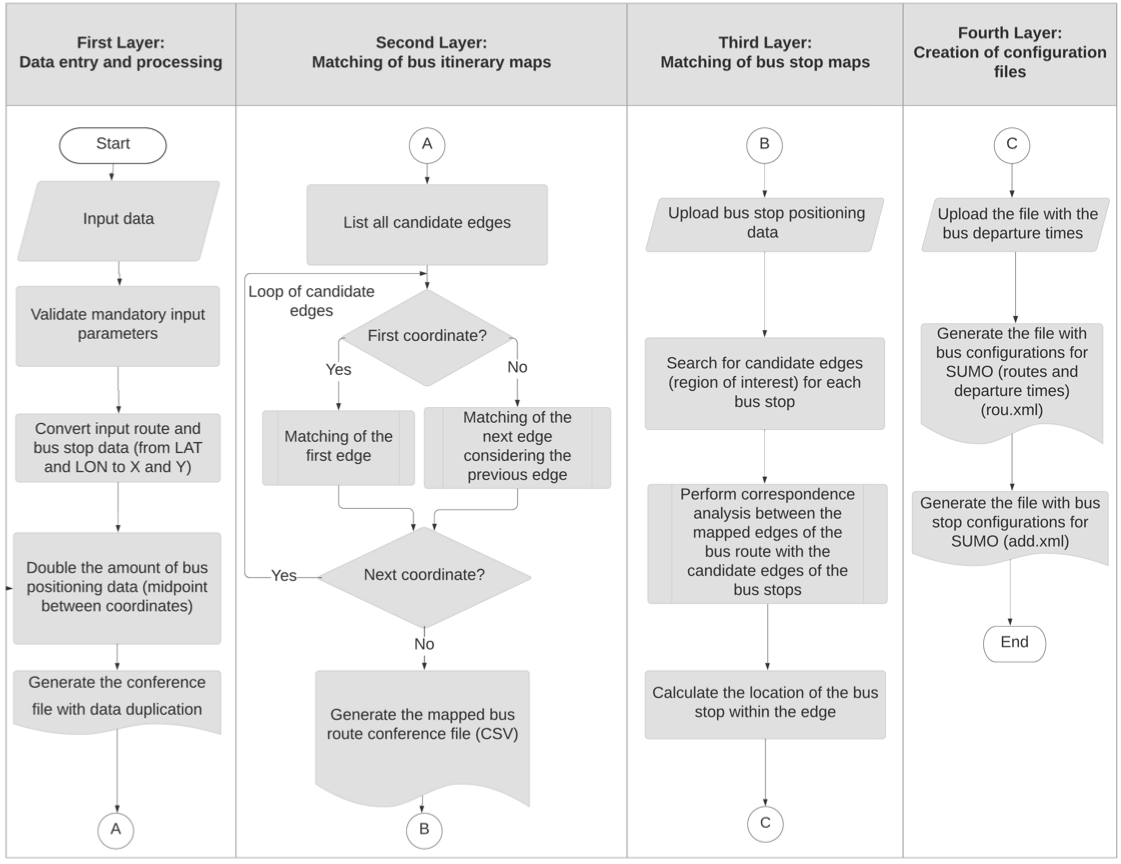Performance of Opportunistic Data Networks Based on Public Transportation Systems
DOI:
https://doi.org/10.14209/jcis.2024.9Keywords:
Smart cities, Public transportation system, Geopositioning data, Map-matching, Statistical analysisAbstract
Smart Cities are those which use technology to promote the well-being of the population, economic growth and, at the same time, improve sustainability. The application of these technologies in road transportation services has been conducted within programs known as Intelligent Transportation Systems (ITS). Vehicular Ad Hoc Networks (VANETs) are a key part of the intelligent transportation systems framework. The buses belonging to a Public Transportation System (PTS) can be considered as nodes of a kind of opportunistic data network. However, the transportation literature does not provide acceptable models for bus movements in an urban environment since they are affected by vehicular and passenger traffic conditions, lanes organization, traffic signal management, company policies, and others. This article uses the Engine for Map Matching to SUMO (EMMS), a computational tool that automatically imports the public transportation system characteristics into a simulation environment in order to study the system performance. Specifically, geolocation data from public transportation buses, in the city of Curitiba (Brazil), are used. The results obtained show that the formation of small temporary networks is possible, allowing the exchange of data between buses. However, those networks provide low throughput and packet delivery rates, as well as large routing overhead and end-to-end delay.
Downloads

Downloads
Additional Files
Published
How to Cite
Issue
Section
License
Copyright (c) 2024 Eduardo, Emilio, Joilson (Author)

This work is licensed under a Creative Commons Attribution 4.0 International License.
Authors who publish in this journal agree to the following terms:
- Authors retain copyright and grant the journal right of first publication with the work simultaneously licensed under a CC BY-NC 4.0 (Attribution-NonCommercial 4.0 International) that allows others to share the work with an acknowledgment of the work's authorship and initial publication in this journal.
- Authors can enter into separate, additional contractual arrangements for the non-exclusive distribution of the journal's published version of the work (e.g., post it to an institutional repository or publish it in a book), with an acknowledgment of its initial publication in this journal.
- Authors are permitted and encouraged to post their work online (e.g., in institutional repositories or on their website) before and during the submission process, as it can lead to productive exchanges, as well as earlier and greater citation of published work (See The Effect of Open Access).
___________
Accepted 2024-06-05
Published 2024-06-13


